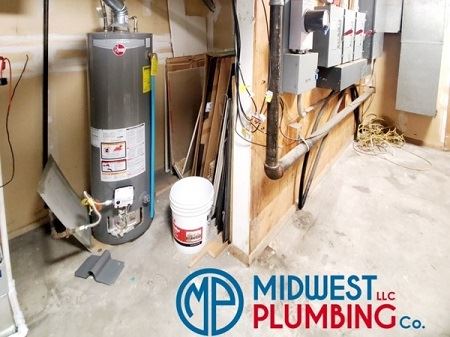Most of us don’t give our water heaters a second thought–until we jump in the shower and get blasted with cold water. Then, we suddenly remember how essential this humble appliance is to our daily lives. But how much do we really know about water heaters? Here is everything you may be wondering about your water heater:
Why do I keep running out of hot water?
If you’re like most people, you probably take your hot water heater for granted-that is, until you turn on the shower only to be met with a blast of cold water. If this has happened to you, it’s likely that your water heater is in need of some attention. One possible problem could be that the lower heating element in your electric water heater has failed. Another issue could be a build-up of sediment in the bottom of the tank, preventing the heat from being evenly distributed. While some of these issues can be fixed with repairs, it may be necessary to plan for a new water heater installation soon. If you’re unsure what’s wrong with your water heater, it’s best to call a plumber for an inspection. They will be able to diagnose the problem and let you know if repairs or replacement is the best option.
What temperature should I set my water heater at?
Most people are familiar with the default settings on their water boilers – 130 degrees Fahrenheit. But many don’t realize that this isn’t the most recommended temperature for your boiler. It’s been suggested by experts that the ideal setting for your boiler is 120 degrees Fahrenheit. There are several reasons for this. For one, water at 120 degrees is still hot enough to provide all the benefits of boiling water – such as sterilization and cooking – without putting you at risk of injury. Also, setting your boiler to 120 degrees can help you save on your energy bill.
How can I save water on my water heater?
One way to save water is to purchase low-flow plumbing solutions like taps, shower heads, and faucets. These fixtures are designed to reduce the amount of water flow without sacrificing performance. Additionally, insulating your boiler will help keep your water hot for longer periods of time, meaning that you will be more energy efficient and won’t have to waste energy reheating water that has cooled off. Finally, simply making sure that your boiler is well-maintained will go a long way towards reducing its water usage – an annual service should be all that is needed to keep your boiler in good working order.
Why is my pipe leaking?
Water heaters can develop leaks over time, causing water to pool around the unit or drip from the tank. If you notice a leak, it’s important to take action immediately to avoid further damage. The most common cause of a leaking water heater is a crack in the internal tank. This usually occurs due to increased pressure in the unit, which can be caused by setting the temperature too high. To prevent this from happening, it’s important to keep your water heater set at no more than 120 degrees Fahrenheit. If you find a leak, you’ll likely need to replace your water heater or at least get repairs. However, by taking some simple precautions, you can help prevent leaks from occurring in the first place.
Why does it take so long for my shower to heat up? How can I get it to heat up faster?
Waiting for hot water to arrive is a common frustration for many people. In most cases, this is due to the plumbing in the home. When hot water leaves the water heater tank, it has to travel through pipes to reach the faucet. The further the hot water flows, the longer it takes to heat the shower. This problem is especially common in ranch-style homes or large homes with long “plumbing runs.”
A good solution to this problem is a re-circulation pump system. This system helps to circulate hot water back to the water heater so you can enjoy a hot shower sooner.
When should I replace my water heater, and how do I extend It’s life?
Upgrading your current water heater may not be at the top of your to-do list, but it’s definitely something you should keep in mind. A new water heater can mean increased efficiency and, as a result, lower energy bills. Not to mention, it can also mean improved water quality and temperature. If you’re not sure when you last upgraded your water heater, you can usually find out by looking at the serial number. Otherwise, keep an eye (and ear) out for strange noises or smells from your system, uneven water temperature or flow, and increasing energy bills. These could all be signs that it’s time for an upgrade. So while it may not be the most exciting home improvement project, replacing your water heater is definitely worth considering.
Contact your local water heating company!

At MIDWEST PLUMBING CO. LLC CO, LLC, we understand that not everyone is an expert when it comes to plumbing. That’s why we’re here to help you with your next water heater installation in Wheat Ridge, Colorado. We’ll work with you to make sure you get the best possible service for your home. With MIDWEST PLUMBING CO. LLC, you can count on us for all your Wheat Ridge plumbing and water heater replacement needs. Call us today to get started on your next water heater project.
Here are the related services we provide:
- Tankless water heater installation
- Comprehensive water heater services
- Quality hot water heater repairs
- Water heater replacement services
- Residential water heaters

